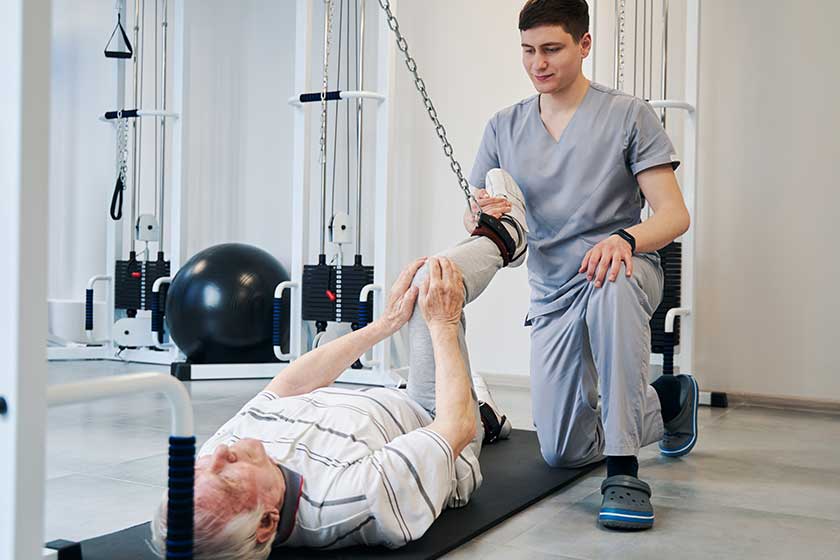As a health advocate for your aging loved one, ensuring their well-being becomes a top priority. Finding the right living environment with effective health systems for seniors can make all the difference in providing superior care. Below, we’ll cover the health systems designed to promote health, happiness, and overall quality of life for older adults. We will also explore several ways that health systems in retirement communities are structured to provide the best possible care for your loved ones.
Telehealth Services
-
Convenient Access to Healthcare
Telehealth services have revolutionized how older adults access medical care. Through virtual consultations, they can communicate with healthcare professionals from the comfort of their homes, reducing the need for travel and exposure to potential health risks.
-
Chronic Disease Management
Telehealth is particularly beneficial for managing chronic diseases. Regular virtual check-ins allow for continuous monitoring of conditions such as diabetes, hypertension, and heart disease, enabling timely interventions and adjustments to treatment plans.
Home Health Care Services
-
Personalized In-Home Care
Home health care services bring medical and therapeutic care directly to seniors’ homes. Services can include wound care, physical therapy, and medication management, ensuring that older adults receive professional care while remaining in a familiar environment.
-
Support for Daily Living
In addition to medical care, home health care services often include assistance with daily activities such as bathing, dressing, and meal preparation. This comprehensive support helps older adults maintain their independence and quality of life.
Health Education and Resources
-
Patient Education Programs
Health systems offer educational programs to help older adults understand and manage their health conditions. These programs cover a range of topics, including medication management, nutrition, and exercise, empowering seniors with the knowledge to take control of their health.
-
Resource Access
Older adults have access to a wealth of health resources through health systems, including support groups, educational workshops, and online health libraries. These resources provide valuable information and support for both older adults and their family members.
Emergency Response Systems
-
Rapid Response Solutions
Emergency response systems, such as medical alert devices, provide immediate assistance in case of emergencies. These systems can quickly connect older adults to emergency services, family members, or caregivers, ensuring prompt attention and care.
-
Peace of Mind
Having an emergency response system in place gives seniors and their family members peace of mind, knowing that help is readily available at the push of a button. This security can significantly enhance a senior’s sense of safety and well-being.
How Retirement Communities Offer Tailored Health Systems for Older Adults
Ensuring the well-being of loved ones in retirement communities is greatly enhanced by effective health systems for older adults. These systems are characterized by personalized care plans tailored to each resident’s unique needs, preferences, and medical history. Regular updates and reviews of these plans ensure that care adapts to any changes in residents’ health, providing continuous and appropriate attention that enhances their quality of life.
Access to specialized healthcare professionals is another big component of these health systems. An amenity-rich retirement community often provides on-site medical services, including doctors, nurses, and therapists, ensuring timely medical attention without the need for residents to travel. Additionally, coordination with external specialists guarantees comprehensive medical support, offering a holistic approach to each resident’s healthcare needs.
Advanced wellness programs further distinguish superior health systems in retirement communities. Such programs emphasize preventive health measures, regular screenings, vaccinations, and health education to prevent common health issues. Tailored fitness and nutrition plans promote physical and mental well-being, catering to various fitness levels and dietary needs, thus helping residents stay active, healthy, and engaged.







